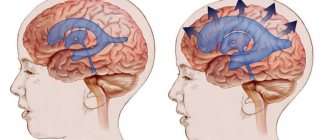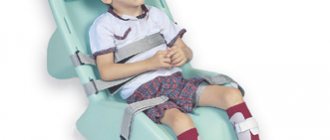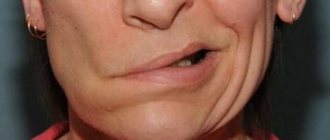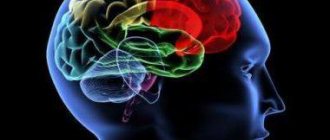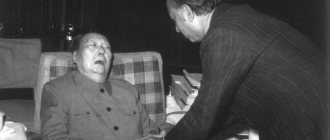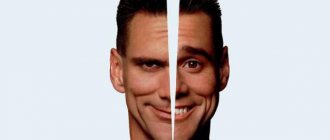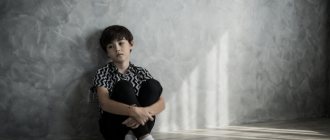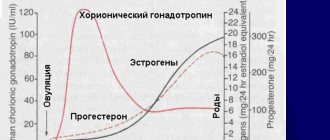Causes of neurological diseases in children
The development of neurological diseases in children under one year of age is usually associated with the peculiarities of the intrauterine development process. Experts name the most common reasons:
- the child receiving a mechanical injury to the spine or brain during childbirth;
- oxygen starvation (hypoxia) of the fetus, which occurs for various reasons, for example, due to repeated entanglement of the umbilical cord around the neck;
- the complex process of childbirth and labor, which leads to infection of the birth canal, an increase in the anhydrous gap, the development of inflammatory complications, bleeding during or after childbirth;
- acute toxicosis of pregnant women throughout the entire period;
- genetic inheritance.
As for children over 1 year old, the root of neurological pathologies should be looked for in:
- low immunity and persistent infectious diseases of the child;
- frequent stress, depression;
- misuse of certain medications, such as antibiotics, anti-inflammatory drugs, corticosteroids;
- excessive stress on the body – physical and mental;
- being in constant fear and depression caused by the behavior of parents and peers at home, in kindergarten, school, clubs and sections;
- excessive emotionality of the child;
- unfavorable environmental conditions;
- diseases of the brain, internal organs, injuries.
Whatever the causes of neurological diseases in children, it is important to promptly detect disorders and begin treatment. The sooner this happens, the less likely it is to develop serious complications and the better the prognosis for recovery.
Neurological diseases
The most common ailments are:
- Migraine . It is difficult to imagine a person who has never had a headache in his life. Some people don’t even consider it a disease - just temporary discomfort. One tablet and the problem is solved in literally 15–20 minutes. But there are people whose headaches appear frequently and last a long time, and miracle pills do not help. You cannot do without consulting a neurologist.
- Insomnia . This disease is more severe than the first, although most people do not take it seriously. Keeping sleeping pills on hand at all times is not the best way out of the situation. Without taking action in time and without undergoing a course of treatment, a person risks getting epilepsy, arthritis, stroke and other diseases of the nervous system.
- Epilepsy . Doctors still cannot fully determine all the reasons why it occurs. At the same time, genetic predisposition has not been proven: some patients have relatives suffering from epilepsy, but the relatives of others know about this disease only by hearsay. The cause of the disease can be a tumor, head injury, impaired blood supply to the brain, and even viruses. Epilepsy is accompanied by convulsive seizures. What is noteworthy is that the patient does not remember at all what happened to him during the seizure. Therefore, relatives must be nearby during an attack so that the patient does not harm himself.
- Stroke . A common disease among older people. Prompt assistance during an attack is fundamental to the patient’s continued well-being. A stroke is a consequence of impaired blood circulation in the brain. The blockage of the artery occurs gradually, and the attack itself is the result of hemorrhage in vulnerable places. The likelihood of a stroke is very high if the patient suffers from diabetes, arrhythmia, pressure changes, or is overweight. The disease can be identified by appearance, speech and coordination of movements. On one side of the body, muscles fail, so a crooked smile is often observed, and a person cannot raise his arms to the same level.
- Multiple sclerosis . One of the most dangerous diseases. The myelin endings of the nerves are destroyed and plaques form in their place. They interfere with the normal flow of impulses from the brain to other organs. Timely diagnosis and proper treatment can slow down and stop the development of the disease, even for several years.
- Alzheimer's disease. A severe neurological disease characterized by memory loss in the patient. A person cannot remember what he did literally half an hour ago, simple words, and even forget who he is and where he lives.
For any neurological disease, it is important to “sound the alarm” as early as possible and consult a doctor. When the first signs appear, you should definitely conduct the necessary research.
Symptoms of neurological diseases in children
The first signs of neurological disorders can be noticed in a child at a very early age. You should consult a doctor for help if you experience the following symptoms:
- twitching of the chin and arms at rest;
- throwing your head back while crying;
- lack of reaction to bright light and the sound of a rattle;
- inability to hold a rattle 30 days after birth;
- inability to hold the head 30 days after birth;
- excessive salivation after feeding;
- hyperexcitability (frequent crying) or passive behavior (does not cry at all);
- increased anxiety, sleep disturbances (difficulty falling asleep, sleeping more than 20 hours a day);
- frequent regurgitation in a fountain;
- the occurrence of seizures with a slight increase in temperature;
- hypertonicity (constant tension) of the leg muscles, arching of the body or tilting of the head to the side, which makes it difficult to change the child’s clothes;
- difficulty swallowing food;
- temporary loss of consciousness;
- A 3-month-old baby does not imitate the speech of adults;
- sunken fontanelle;
- the child does not want to sleep on his stomach;
- When leaning on his legs, the child bends his fingers.
As for an older child, the symptoms of neurological diseases in children will be somewhat different:
- forgetfulness, absent-mindedness;
- fainting;
- urinary incontinence;
- delayed speech development;
- excessive nervousness;
- panic attacks;
- the child has difficulty making contact with other children;
- insomnia;
- poor appetite;
- constant despondency and melancholy attitude towards life;
- constant headache.
If parents detect even some of these signs, it is necessary to urgently consult a specialist.
Symptoms of trouble in child neurology
March 04, 2021
Child neurology is a science that studies the patterns of development, methods of diagnosis, treatment and prevention of diseases of the central and peripheral nervous system in children from 0 to 18 years. This is a fairly “young” specialty, which originated at the intersection of several sciences - neurology, pediatrics, neonatology, genetics, psychology and neurosurgery.
Damage to the nervous system can occur at various stages of a child’s development, starting from the prenatal period, when the formation and formation of the brain and spinal cord occurs. The damaging factor may be the pathological course of pregnancy: toxicosis, threat of miscarriage, stress, infectious diseases of the mother, pathology of the placenta, etc. Disturbances in the child may occur during labor (fetal hypoxia, birth injuries). After birth, the causes of neurological diseases in children are acute or chronic stress, overwork, infections, injuries, tumors. The fate of the child largely depends on the timely detection and treatment of neurological diseases: his social adaptation and schooling. However, it is necessary to remember that both belated diagnosis of diseases of the nervous system and overdiagnosis (detection of non-existent diseases) with the prescription of unnecessary medications are inadmissible! After birth, a child’s brain continues to actively develop. During the first three years of life, a child acquires 50% of the knowledge, skills and abilities that are the basis for subsequent learning. And neurologists call the first year of life the “golden year”, since it is the most important for the baby. That is why regular preventive examinations by a pediatric neurologist are necessary at an early age. It is recommended to examine babies at 1, 3, 6, 9 and 12 months in the first year of life (if there is no need to visit a specialist more often), once every 6 months in the second year and once in the third year of life, when speech and memory are actively developing , thinking, children learn to interact with each other and with adults.
Symptoms of trouble that parents should pay attention to:
- In infancy - sleep disturbances, frequent profuse regurgitation, “unreasonable” crying, increased excitability, shuddering, excessive growth of head circumference.
- In young children (up to 3 years) - delays in speech and psycho-speech development, motor disorders, coordination disorders, hyperexcitability, hyperactivity, increased distractibility, obsessive fears, tics, hesitations in speech, convulsive attacks (for example, with an increase in body temperature, on background of infectious diseases).
- At school age - neuroses (tics, stuttering, enuresis), emotional instability, causing maladjustment in the team, increased fatigue, learning difficulties (decreased memory, poor handwriting, frequent agrammatism, slow reading), headaches, dizziness, fainting.
The algorithm for interaction with a doctor is as follows: a conversation during which complaints, anamnesis, features of the course of pregnancy and childbirth, features of the child’s development, the sequence of occurrence of symptoms of trouble are clarified, examination (in a playful way with babies), diagnosis, recommendations on the daily routine, treatment. If necessary, instrumental studies are prescribed: ultrasound of the brain, MRI, CT, EEG, ENMG.
Most diseases of the nervous system in children can be cured! Even in the case of incurable diseases, for example, such as cerebral palsy, early prescription of restorative treatment can significantly improve the quality of life of young patients and their further socialization.
Treatment is prescribed in accordance with the standards of medical care and clinical recommendations of the Ministry of Health of the Russian Federation with mandatory adherence to an individual approach. Medicines used in neuropediatrics are safe and are aimed at restoring the metabolism and function of neurons in damaged areas of the brain. The inclusion of non-drug interventions in the rehabilitation program, such as massage, therapeutic exercises using special adapted techniques, exercise therapy, swimming, allows minimizing drug therapy, so these methods are a priority. Practical experience shows that early detection of even seemingly insignificant deviations in the normal development of a child and their timely correction is the key to successful development and a happy fate, big and small victories, the key to a decent and prosperous life in the future.
- Previous news
- Next news
List of neurological diseases in children
The list of neurological diseases in children is quite impressive, so we will limit ourselves to listing the most common ones.
- Epilepsy. The disease manifests itself by sudden, recurring convulsive attacks.
- Cerebral palsy . The disease is characterized by limited motor capabilities of the child, difficulties in maintaining an upright posture and walking. Often accompanied by reduced intelligence, delayed speech development and epilepsy.
- Neurosis (psychoneurosis, neurotic disorder) . This name unites a group of reversible disorders, which are characterized by obsessive, asthenic or hysterical manifestations, weakening of both mental and physical performance.
- Hyperactivity . The disease manifests itself in the child’s excessive energy and mobility, impaired attention and sleep, lack of appetite, anxiety and some bad habits, for example, the habit of biting nails.
- Asthenic syndrome . Often occurs as a consequence of traumatic brain injury. It manifests itself as rapid fatigue, irritability, isolation and self-doubt, or a complete loss of the ability to perform physical activity for a long time.
Comprehensive examination of children with neurological disorders “Accurate diagnosis”
The “Accurate Diagnosis” program for a comprehensive examination of children with neurological disorders is an effective method for examining and treating children with neurological pathologies.
This program is suitable if:
- If the child has the following disorders: speech development delay (SRD), psychospeech development delay (PSRD), dysarthria, alalia, dysphasia, attention deficit hyperactivity disorder (ADHD), autism spectrum disorder (ASD)
- If pre-established diagnoses: perinatal encephalopathy, hydrocephalus, fetal hypoxia, minor cerebral dysfunction, etc.
- If the baby was born before the due date, prematurity
- If tried treatment methods do not give the desired results
Based on our experience of working with more than 1000 children from 0 to 18 years old and observing a large number of cases of unproductive treatment due to an inaccurate diagnosis, we have developed a program aimed primarily at establishing the correct diagnosis and, as a result, effective treatment .
Program stages:
Electroencephalogram (EEG)
Conducted by a neurologist-neurophysiologist according to the protocols of the Burdenko Institute of Neurosurgery. A doctor specializing in functional diagnostics of changes in the central nervous system.
EEG is a highly accurate non-invasive research method that allows you to assess the bioelectrical activity of the brain and identify disorders in various areas of the cerebral cortex.
Initial examination by a neurologist
Initial examination of the child by a neurologist specializing in speech disorders and cognitive impairment in children.
During the examination, the neurologist’s initial acquaintance with the child and parents occurs. The doctor receives information about the history of the disease and assesses the neurological status of the patient. The doctor compares the clinical picture with the changes detected on the EEG.
Consultation with a neuropsychologist
A neuropsychologist is a specialist who assesses the functional state of the child’s brain, the maturity of the psycho-emotional sphere in accordance with age, identifies the prerequisites that led to the disease, and determines the structure of the disorder.
The object of study of a neuropsychologist: the cortex, subcortex and brain stem, as well as the interaction of the cerebral hemispheres.
Consultation with a speech therapist-defectologist
A speech pathologist-defectologist conducts diagnostics of speech development aimed at identifying the child’s individual characteristics, characterizing his communicative abilities, cognitive and emotional-volitional spheres.
Joint conclusion of a speech therapist-defectologist and a neuropsychologist
At the final stage, a council of specialists collectively analyzes all the results of examinations and studies, and then draws up a single conclusion with the appointment and development of a correction route.
Repeated consultation with a neurologist (face-to-face/Skype consultation)
At the final stage, the neurologist analyzes all the results of examinations and studies, and then draws up a single conclusion with the prescription of drug therapy and corrective classes.
Cost of the “Diagnostics: Accurate Diagnosis” program: 14,200 rubles.
Very often, visits to numerous doctors do not give the expected results. There is no improvement.
Why are there situations when treatment does not bring results?
In most cases, this is due to the fact that the cause of the violation is incorrectly identified. Why might the cause of a violation be incorrectly identified? Because the violation can be complex, combined. That is, the violation may be based on not one reason, but several at once. And it is the complex of these reasons that leads to the problem.
Why can it be so difficult to identify this complex of causes? Because these reasons may relate to the areas of expertise of several different specialists at once. And each doctor evaluates the violation from the point of view of his own specialization.
Our program is based on the principle of not symptomatic treatment, but a morphological approach to diagnosis - all basic examinations are carried out in our center, our doctors have the ability to comprehensively identify the root cause of the disorder and make collective decisions, which gives us the opportunity to quickly restore the health of a small patient.
We openly explain to parents the causes of the disorder and the prognosis for recovery in accessible language, explaining medical terms. During the final consultation, doctors give comprehensive answers to all questions - what methods and in what time frame can achieve results. For those children who require further treatment, individual course programs are developed.
Experience, professionalism, expert-class equipment and an interdisciplinary approach allow us to make the correct diagnosis with 100% confidence and prescribe the necessary course of corrective therapy.
Treatment of neurological diseases in children
Treatment of neurological disorders in children includes taking medications that restore the functioning of the nervous system, physical and psychological correction. The child may be prescribed courses of therapeutic massage, special physical education, and exercises in water. Physiotherapeutic methods are often used - stimulation with a high-intensity magnetic field or electric current, laser therapy, ultraphonophoresis of enzyme preparations, electrophoresis and others.
What treatment the doctor will prescribe depends on the child’s age, concomitant diseases, the totality of all the features of the development of neurological pathology from beginning to end, as well as on the effectiveness of correction at the previous stage.
In the city of Penza, you can be examined by a pediatric neurologist and receive qualified assistance at the medical ]"Stoletnik"[/anchor], located at the address: st. Chaadaeva, 95 on the first floor of a five-story residential building. On Wednesdays from 9.00 to 12.00 and on Fridays from 13.00 to 15.00, consultations are conducted by a doctor of the highest qualification category.
MAKE AN APPOINTMENT
Affective-respiratory attacks
- rolling up while crying indicates an inconsistency in the reaction of excitation and inhibition in the nervous system.
- speech delay is associated with disruption of the nervous system, with a delay in its development. This also includes logoneurosis - a speech disorder that manifests itself in the repetition of the same words, sounds, conversational pauses and interrupted speech. Essentially, it is stuttering that is neurological in nature. The causes of logoneurosis may be defects or underdevelopment of the articulatory apparatus; heavy loads when learning spoken language; imitation; strictness in education, stress, etc.
Literature:
- Belyaeva I. A., Bombardirova E. P., Tokovaya E. I., Kharitonova N. A., Lazurenko S. B., Turti T. V., Illarionova M. S. Non-drug habilitation of children with perinatal lesions of the nervous system / / Issues of modern pediatrics. – 2021. – No. 16 (5). – pp. 383–391.
- Bombardirova E. P., Yatsyk G. V., Stepanov A. A. Treatment and rehabilitation of perinatal lesions of the nervous system in children in the first months of life // Attending physician. – 2005. – 2. – P.67–69.
- Petrukhin A. S., Pylaeva O. A. Current problems of pediatric neurology // General Medicine. – 2005. – No. 2. – P. 3–11.
Author: Loginova N. A.
Reviewer: reflexologist Kurus A. N.
